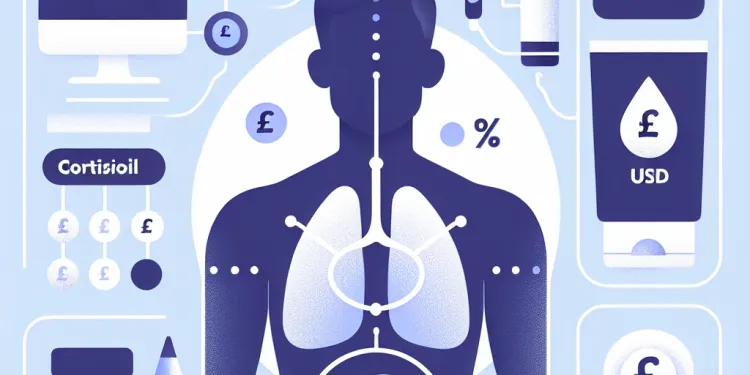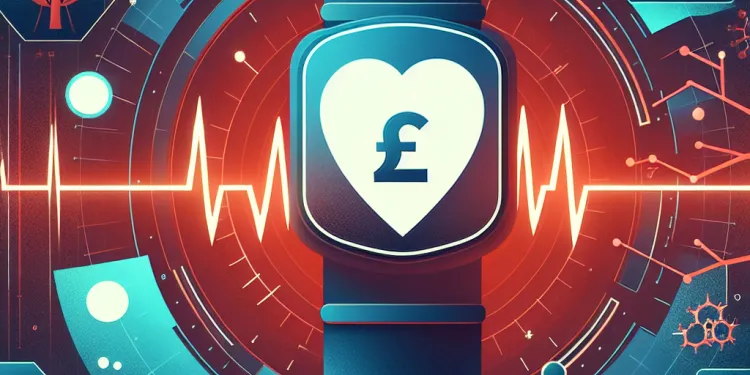
Find Help
More Items From Ergsy search
-

What can high levels of cortisol cause?
Relevance: 100%
-

Can cortisol levels be measured?
Relevance: 85%
-

Can exercise influence cortisol levels?
Relevance: 83%
-

Can diet influence cortisol levels?
Relevance: 82%
-

Can cortisol levels impact mood and mental health?
Relevance: 79%
-

What factors can influence cortisol levels?
Relevance: 78%
-

How can stress management affect cortisol levels?
Relevance: 77%
-

What can low levels of cortisol cause?
Relevance: 74%
-

How do cortisol levels differ between acute and chronic stress?
Relevance: 73%
-

Are there any lifestyle changes that can help regulate cortisol levels?
Relevance: 73%
-

What is cortisol?
Relevance: 71%
-

How is cortisol regulated in the body?
Relevance: 65%
-

What is the role of cortisol in metabolism?
Relevance: 64%
-

Is there a connection between cortisol and the immune system?
Relevance: 63%
-

What role does cortisol play in the body?
Relevance: 62%
-

How does cortisol affect the body's stress response?
Relevance: 61%
-

What is the normal pattern of cortisol secretion throughout the day?
Relevance: 59%
-

What is the relationship between cortisol and the circadian rhythm?
Relevance: 55%
-

High Air Pollution Levels Linked to Rising Cases of Respiratory Issues
Relevance: 42%
-

Can stress cause high blood pressure?
Relevance: 36%
-

Why is reducing aldosterone levels important?
Relevance: 35%
-

Can fiber help lower cholesterol levels?
Relevance: 33%
-
Are high caffeine drinks safe?
Relevance: 33%
-

How does sugar affect my energy levels?
Relevance: 32%
-

What are PSA levels? - Prostate Cancer
Relevance: 32%
-

What is high oleic sunflower oil?
Relevance: 32%
-

What causes high blood pressure?
Relevance: 32%
-

Can high blood pressure be prevented?
Relevance: 32%
-

What is high blood pressure?
Relevance: 32%
-

What is the importance of PSA levels in treatment?
Relevance: 32%
-

Do all pregnancy tests detect the same levels of hCG?
Relevance: 31%
-

What is Cushing's syndrome?
Relevance: 31%
-

What foods are high in fiber?
Relevance: 31%
-

What are the risks of having high blood pressure?
Relevance: 30%
-

How is high blood pressure diagnosed?
Relevance: 30%
-

Can GLP-1 levels be measured?
Relevance: 30%
-

How does Abiraterone affect hormone levels?
Relevance: 30%
-

Is orange juice high in sugar?
Relevance: 30%
-

What is the ideal salt intake for someone with high blood pressure?
Relevance: 29%
-

Does drinking orange juice affect blood sugar levels?
Relevance: 29%
Introduction to Cortisol
Cortisol is a hormone produced by the adrenal glands, which are located on top of the kidneys. It plays a crucial role in various bodily functions such as metabolism, immune response, and stress regulation. However, when cortisol levels remain consistently high, it can lead to several health issues.
Impact on Mental Health
High levels of cortisol are often associated with increased stress and anxiety. Chronic stress can contribute to depression and other mental health disorders. Elevated cortisol can disrupt the normal functioning of the brain, affecting areas involved in mood regulation, memory, and decision-making. This can lead to difficulties in concentration and increased feelings of sadness or hopelessness.
Effects on Physical Health
Physically, elevated cortisol levels can lead to significant health problems. One major concern is the impact on cardiovascular health. High cortisol can increase blood pressure and contribute to a higher risk of heart disease. Additionally, cortisol affects glucose metabolism, potentially leading to insulin resistance and type 2 diabetes.
Weight Gain and Obesity
Cortisol can influence body weight by stimulating appetite and promoting the storage of fat, particularly around the abdomen. This condition, known as visceral fat accumulation, is associated with increased health risks, including metabolic syndrome and cardiovascular diseases. Cortisol can also alter body composition by affecting muscle and fat distribution.
Immune System Suppression
While cortisol is involved in managing the immune response, prolonged elevated levels can suppress the immune system's effectiveness. This makes the body more susceptible to infections and slows down the process of healing. Individuals with high cortisol levels may experience more frequent illnesses and take longer to recover from injuries and infections.
Bone Health
High cortisol levels can negatively impact bone health. Cortisol inhibits the formation of new bone by affecting the activity of osteoblasts, the cells responsible for bone production. This can lead to decreased bone density, increasing the risk of osteoporosis and fractures, particularly in older adults.
Conclusion
While cortisol is essential for the body's response to stress and various metabolic functions, prolonged elevated levels can have detrimental effects on both mental and physical health. Recognizing and managing stress, adhering to a healthy lifestyle, and seeking medical advice when necessary can help maintain cortisol levels within a healthy range and mitigate associated health risks.
Introduction to Cortisol
Cortisol is a hormone made by the adrenal glands. These glands sit on top of your kidneys. Cortisol helps many body functions like how we use food for energy, our immune system, and how we handle stress. But too much cortisol for a long time can make us sick.
Impact on Mental Health
Too much cortisol can make us feel more stressed and worried. If your stress is high for a long time, it can lead to sadness and other mental health problems. High cortisol affects how our brain works and can make it hard to remember things and make choices. It can also make it hard to focus and lead to feelings of sadness.
Effects on Physical Health
Too much cortisol can also harm our body. It can make our heart work harder and raise blood pressure. This can increase the risk of heart problems. Cortisol affects how our body uses sugar, which can lead to problem like type 2 diabetes.
Weight Gain and Obesity
Cortisol can make you feel hungry and cause your body to store extra fat, especially around your belly. Having too much belly fat is linked with health issues like heart disease. Cortisol can change how fat and muscle are spread in your body.
Immune System Suppression
Cortisol helps manage the immune system, but too much of it can make it weaker. This means you can get sick more easily and take longer to get better. When cortisol is high, you might get infections more often and heal from injuries more slowly.
Bone Health
Having high cortisol can be bad for bones. It stops new bone from being made well, which can make your bones weaker and lead to breaks or bone problems, especially as you get older.
Conclusion
Cortisol is important for stress and other body functions, but too much can be bad for health. It's important to manage stress, live healthily, and see a doctor if needed. This helps keep cortisol levels safe and can prevent health problems.
Frequently Asked Questions
What is cortisol?
Cortisol is a steroid hormone produced by the adrenal glands, often released in response to stress and low blood glucose.
What are high levels of cortisol commonly associated with?
High levels of cortisol are commonly associated with stress but can also be due to medical conditions or prolonged use of corticosteroid medication.
How does high cortisol affect weight?
High cortisol levels can lead to weight gain, particularly around the abdomen, due to increased appetite and fat storage.
Can high cortisol levels affect sleep?
Yes, high cortisol levels, especially at night, can interfere with sleep, causing insomnia or disrupted sleep patterns.
What impact does high cortisol have on blood sugar?
High cortisol levels can increase blood sugar by stimulating glucose production in the liver, possibly leading to insulin resistance over time.
How can high cortisol levels impact mental health?
Elevated cortisol levels are associated with increased anxiety, depression, and mood swings due to its impact on the brain.
What effect does high cortisol have on the immune system?
High cortisol levels can suppress the immune system, making the body more susceptible to infections and slowing the healing process.
Can high cortisol levels affect bone health?
Yes, elevated cortisol levels can decrease bone formation, leading to lower bone density and increasing the risk of osteoporosis over time.
What are the cardiovascular effects of high cortisol?
High cortisol levels can lead to increased blood pressure and contribute to cardiovascular disease by affecting the heart and blood vessels.
How do high cortisol levels affect the digestive system?
Elevated cortisol can disrupt digestion, leading to conditions like heartburn, indigestion, or irritable bowel syndrome (IBS).
What is the link between high cortisol and memory problems?
Chronic high cortisol levels can impact brain function, leading to memory problems and difficulties with concentration.
How can high cortisol levels affect the skin?
High cortisol can cause skin issues such as acne, thinning skin, and a slower healing process for cuts and bruises.
Can high cortisol levels impact fertility?
Yes, high cortisol can disrupt reproductive hormones, potentially leading to irregular menstrual cycles or reduced fertility.
What long-term conditions are associated with high cortisol levels?
Long-term high cortisol levels can lead to conditions such as Cushing's syndrome, adrenal fatigue, and metabolic disorders.
Can high cortisol cause fatigue?
Yes, although cortisol is often associated with energy, chronic high levels can lead to fatigue by disrupting normal hormone cycles.
How does high cortisol influence muscle mass?
High cortisol levels can lead to muscle wasting and weakness by breaking down muscle tissue for energy.
What are the effects of high cortisol on stress levels?
High cortisol levels are both a marker of stress and a contributor to chronic stress, creating a cycle that can be hard to break.
Does high cortisol affect cholesterol levels?
Elevated cortisol can lead to higher cholesterol levels, contributing to an increased risk of heart disease.
What lifestyle factors contribute to high cortisol levels?
Chronic stress, lack of sleep, poor diet, and lack of physical activity can all contribute to sustained high cortisol levels.
How can high cortisol levels be managed?
Management includes stress reduction techniques, healthy lifestyle changes, regular exercise, adequate sleep, and in some cases, medical treatment.
What is cortisol?
Cortisol is a chemical in your body. It is called a hormone. It helps your body do different things.
When you feel stressed or scared, your body makes more cortisol. It helps you have energy and stay alert.
If you want to understand cortisol better, you can ask a doctor. They can use pictures or videos to explain it.
Cortisol is a type of chemical in our body. It comes from small organs called adrenal glands. Cortisol helps when we feel stressed or when our blood sugar is low.
What happens when there is too much cortisol?
When there is too much cortisol, it can mean:
- You feel very stressed a lot.
- Your body feels tired.
- It's hard to sleep well.
- You might feel sad or worried.
To help, you can:
- Talk to someone you trust, like a friend or a teacher.
- Try to relax by listening to music or drawing.
- Go for a walk or play outside to feel better.
- If you're having a hard time, ask an adult for help.
When your body has too much cortisol, it can be because you feel stressed. Cortisol can also be high if you are sick or if you take medicine with steroids for a long time.
Here are some ways to feel better:
- Try to relax and take deep breaths.
- Talk to someone you trust, like a friend or family member.
- Ask a doctor for advice or help.
How does too much cortisol affect weight?
Cortisol is a hormone in your body. It helps you respond to stress. But if you have too much cortisol, it can make you gain weight. This often happens around your tummy.
Here are some tips to help:
- Try to relax and reduce stress. You can do this by going for a walk, doing deep breathing, or listening to music you like.
- Eat healthy foods like fruits, vegetables, and whole grains. They can help keep your weight healthy.
- Make sure you get enough sleep. Sleep helps your body handle stress better.
When your body has too much of a stress hormone called cortisol, it can make you gain weight. This can make you feel more hungry and keep more fat, especially around your tummy.
Can high cortisol levels affect sleep?
Cortisol is something in your body that helps you feel awake. But if you have too much cortisol, it can make it hard for you to sleep.
Here are things that can help:
- Try to relax before bed. You can read a book or listen to calm music.
- Make your room dark and quiet.
- Go to bed at the same time every night.
- Talk to your doctor if you have trouble sleeping.
Yes, having too much cortisol, especially at night, can make it hard to sleep. It can cause trouble falling asleep or staying asleep.
How does high cortisol change blood sugar?
Cortisol is a stress chemical in our body.
If we have too much cortisol, it can make our blood sugar go up.
High blood sugar can make us feel sick.
Using simple tips can help:
- Use a calm app to relax.
- Stay active and play.
- Eat healthy snacks.
- Ask a helper if you feel confused.
When cortisol levels are too high, it can make blood sugar go up. This happens because it makes the liver create more sugar. Over time, this might make it hard for the body to use insulin properly.
Helpful tools and ideas: Use pictures or diagrams to show how this works. Try using apps that explain body processes with videos.
How do high cortisol levels affect mental health?
High cortisol can make you feel stressed.
It can make you feel worried or sad.
It is important to talk to someone if you feel this way.
You can use calming tools like breathing exercises or talk to a counselor.
High levels of a chemical called cortisol in the body can make people feel more anxious, sad, and change how they feel a lot. This happens because cortisol affects the brain.
How does too much cortisol affect the immune system?
When your body has too much cortisol, it can cause problems. It can make it harder for your body to fight off germs and get better when you're sick.
Can high cortisol levels affect bone health?
Can too much cortisol be bad for bones?
Cortisol is a chemical in your body. If you have too much, it might be bad for your bones.
Use simple tools to help understand this:
- Use a story to explain how cortisol works.
- Draw pictures of bones getting weaker.
- Watch videos about cortisol and bones.
Yes, having too much cortisol, a stress hormone, can make it harder for your body to build strong bones. This can make your bones weaker and even lead to a condition called osteoporosis as time goes on.
How does high cortisol affect the heart and blood vessels?
When your body has too much of something called cortisol, it can make your blood pressure go up. This can be bad for your heart and the tubes (blood vessels) that carry blood around your body. It can make them not work as well, and this can lead to heart problems.
What happens to your tummy when you have too much cortisol?
Too much cortisol can upset your tummy. It can cause things like heartburn, a sore tummy, or tummy troubles like IBS.
How does high cortisol affect memory?
Cortisol is a chemical in your body. When you are stressed, you may have more cortisol.
High cortisol can make it hard to remember things.
If you are worried about memory, try these ideas:
- Write things down
- Use pictures to help you remember
- Practice calming activities, like taking deep breaths
Having too much cortisol in your body for a long time can make your brain work less well. It can make it harder to remember things and to focus or pay attention.
How do high cortisol levels change the skin?
Cortisol is a hormone. When there is too much cortisol, it can make your skin different.
- It can cause pimples.
- Your skin might get thin.
- You could have more wrinkles.
- Your skin might bruise easily.
To help your skin, try using gentle skin care products. You can also talk to a doctor for help.
High cortisol can make skin problems, like pimples, happen more. It can also make your skin thin and make cuts and bruises take longer to get better.
Can high cortisol levels affect having a baby?
When we feel stressed, our body makes something called cortisol.
If there is too much cortisol, it can be harder for a person to have a baby.
It's important to stay calm and try to relax.
Some things that can help are deep breathing, yoga, or talking to someone you trust.
Yes, too much cortisol can upset hormones that help with having babies. This might make periods not come at the same time each month or make it hard to have a baby.
What health problems can happen if cortisol is too high for a long time?
Cortisol is a hormone in your body. If you have too much cortisol for a long time, it can cause health problems. Here are some of them:
- Your bones might get weak and break easily.
- You might gain weight, especially around your tummy.
- You could feel tired and have a hard time sleeping.
- Your mood might change. You could feel sad or anxious.
Using pictures or audiobooks can help you understand better.
Having too much cortisol for a long time can make you sick. It can cause problems like Cushing's syndrome, adrenal fatigue, and issues with how your body uses food and energy.
Can high cortisol make you feel very tired?
Yes, cortisol can give you energy. But if your cortisol stays high for a long time, it can make you very tired because it messes up your hormone balance.
How does high cortisol affect your muscles?
Cortisol is a hormone in your body. It's like a message that tells your body what to do.
When you have too much cortisol, it can make it harder to build muscles. This means your muscles might get smaller or weaker.
If you want help understanding or reading, you can use tools like text-to-speech apps. These apps can read the text out loud for you.
Having too much cortisol in your body can damage your muscles. This happens because cortisol breaks down your muscles to get energy. This can make your muscles weak and small.
How does too much cortisol affect stress?
High cortisol levels show when you are stressed and make you more stressed. This can create a cycle that is hard to stop.
Does Stress Change Cholesterol Levels?
When you feel stressed, your body makes something called cortisol.
High cortisol can change how much cholesterol is in your blood.
Cholesterol is a type of fat that your body needs, but too much can be bad.
If you are worried about stress, you can try things like:
- Breathing deeply.
- Talking to someone you trust.
- Doing something you enjoy to relax.
Too much cortisol in your body can make your cholesterol go up. This might make it easier for you to get heart disease.
If reading is hard, you can use tools that read text out loud or make writing bigger and clearer.
What things in our lives can make cortisol go up?
Cortisol is a hormone that our bodies make. Some things we do can make it go higher.
- Stress: When we feel worried or scared a lot, it can make more cortisol.
- Sleep: Not sleeping enough can make cortisol levels higher.
- Food: Eating a lot of sugar or junk food might raise cortisol.
- Exercise: Some exercise is good, but too much can increase cortisol.
To help keep cortisol levels normal, try to:
- Relax and have quiet time every day.
- Get enough sleep at night.
- Eat healthy foods like fruits and vegetables.
- Do some exercise, but not too much.
If you want help, tools like simple schedules or relaxation apps can be useful.
Things like being stressed too much, not sleeping enough, eating unhealthy food, and not moving your body can make your stress hormone stay high for a long time.
How can we manage high cortisol levels?
Managing stress means doing things to help you feel better. You can do this by trying to stay calm, eating healthy foods, exercising a lot, and getting plenty of good sleep. Sometimes a doctor might give you medicine to help too.
Useful Links
This website offers general information and is not a substitute for professional advice.
Always seek guidance from qualified professionals.
If you have any medical concerns or need urgent help, contact a healthcare professional or emergency services immediately.
- Ergsy carfully checks the information in the videos we provide here.
- Videos shown by Youtube after a video has completed, have NOT been reviewed by ERGSY.
- To view, click the arrow in centre of video.
- Most of the videos you find here will have subtitles and/or closed captions available.
- You may need to turn these on, and choose your preferred language.
- Go to the video you'd like to watch.
- If closed captions (CC) are available, settings will be visible on the bottom right of the video player.
- To turn on Captions, click settings .
- To turn off Captions, click settings again.
More Items From Ergsy search
-

What can high levels of cortisol cause?
Relevance: 100%
-

Can cortisol levels be measured?
Relevance: 85%
-

Can exercise influence cortisol levels?
Relevance: 83%
-

Can diet influence cortisol levels?
Relevance: 82%
-

Can cortisol levels impact mood and mental health?
Relevance: 79%
-

What factors can influence cortisol levels?
Relevance: 78%
-

How can stress management affect cortisol levels?
Relevance: 77%
-

What can low levels of cortisol cause?
Relevance: 74%
-

How do cortisol levels differ between acute and chronic stress?
Relevance: 73%
-

Are there any lifestyle changes that can help regulate cortisol levels?
Relevance: 73%
-

What is cortisol?
Relevance: 71%
-

How is cortisol regulated in the body?
Relevance: 65%
-

What is the role of cortisol in metabolism?
Relevance: 64%
-

Is there a connection between cortisol and the immune system?
Relevance: 63%
-

What role does cortisol play in the body?
Relevance: 62%
-

How does cortisol affect the body's stress response?
Relevance: 61%
-

What is the normal pattern of cortisol secretion throughout the day?
Relevance: 59%
-

What is the relationship between cortisol and the circadian rhythm?
Relevance: 55%
-

High Air Pollution Levels Linked to Rising Cases of Respiratory Issues
Relevance: 42%
-

Can stress cause high blood pressure?
Relevance: 36%
-

Why is reducing aldosterone levels important?
Relevance: 35%
-

Can fiber help lower cholesterol levels?
Relevance: 33%
-
Are high caffeine drinks safe?
Relevance: 33%
-

How does sugar affect my energy levels?
Relevance: 32%
-

What are PSA levels? - Prostate Cancer
Relevance: 32%
-

What is high oleic sunflower oil?
Relevance: 32%
-

What causes high blood pressure?
Relevance: 32%
-

Can high blood pressure be prevented?
Relevance: 32%
-

What is high blood pressure?
Relevance: 32%
-

What is the importance of PSA levels in treatment?
Relevance: 32%
-

Do all pregnancy tests detect the same levels of hCG?
Relevance: 31%
-

What is Cushing's syndrome?
Relevance: 31%
-

What foods are high in fiber?
Relevance: 31%
-

What are the risks of having high blood pressure?
Relevance: 30%
-

How is high blood pressure diagnosed?
Relevance: 30%
-

Can GLP-1 levels be measured?
Relevance: 30%
-

How does Abiraterone affect hormone levels?
Relevance: 30%
-

Is orange juice high in sugar?
Relevance: 30%
-

What is the ideal salt intake for someone with high blood pressure?
Relevance: 29%
-

Does drinking orange juice affect blood sugar levels?
Relevance: 29%


